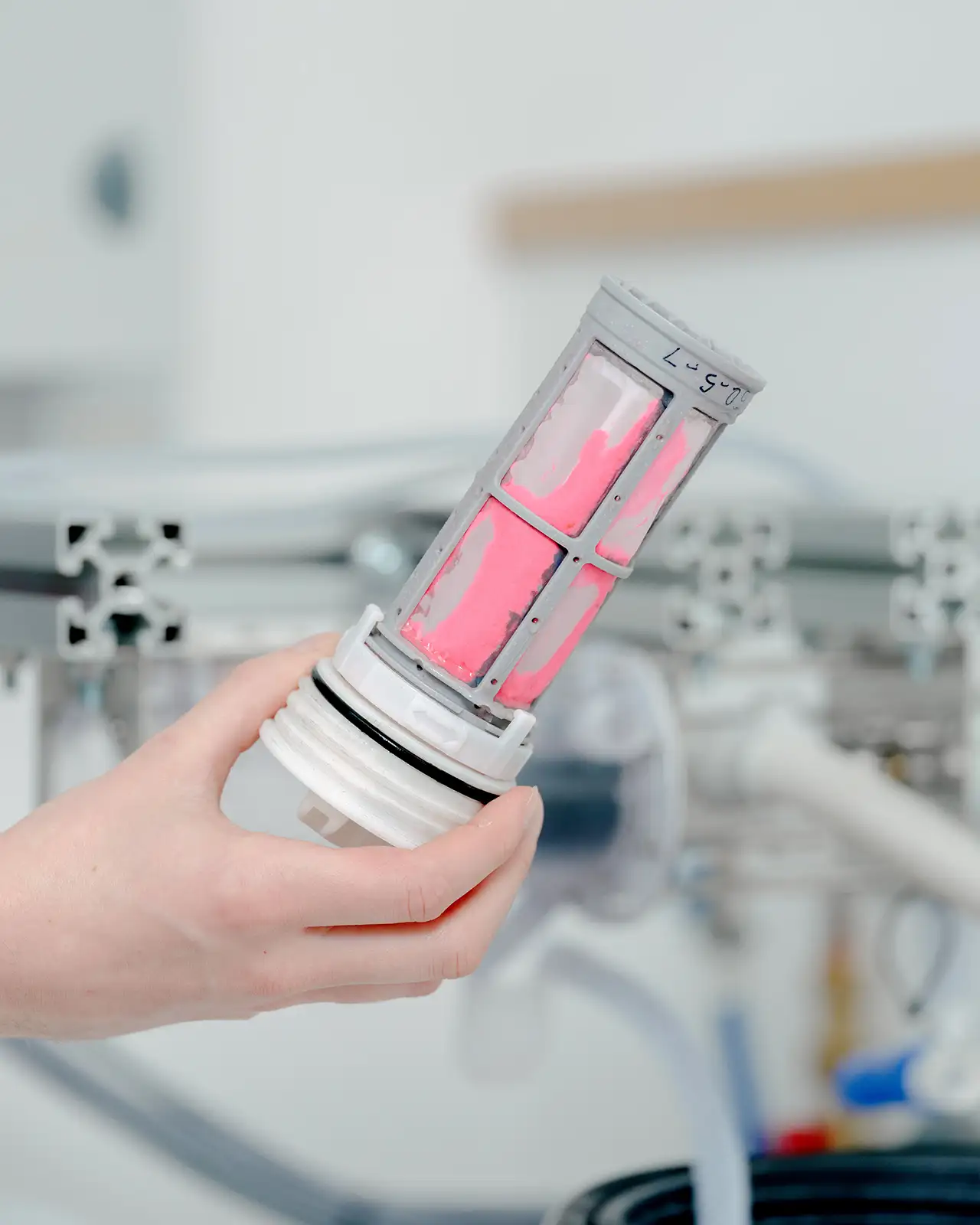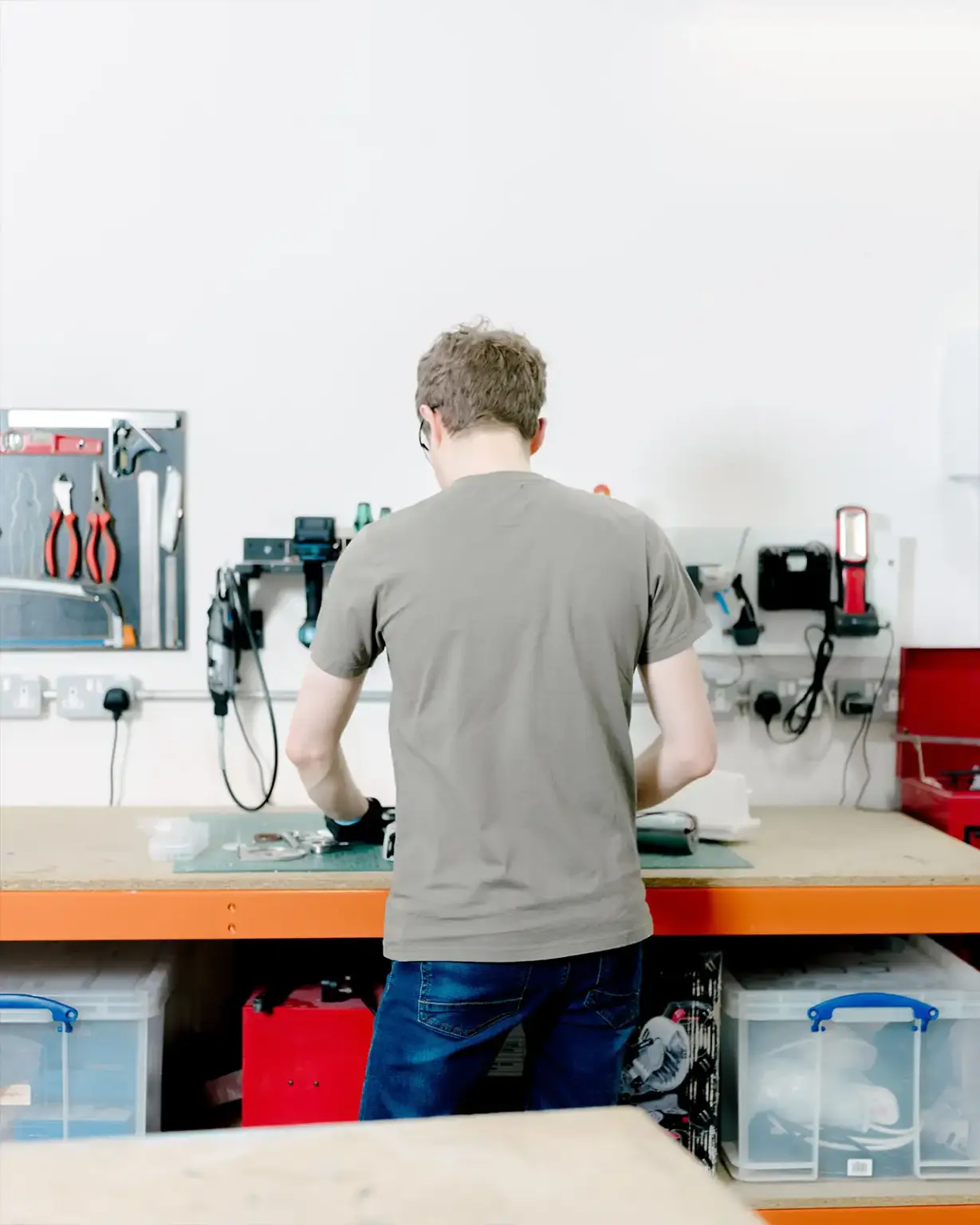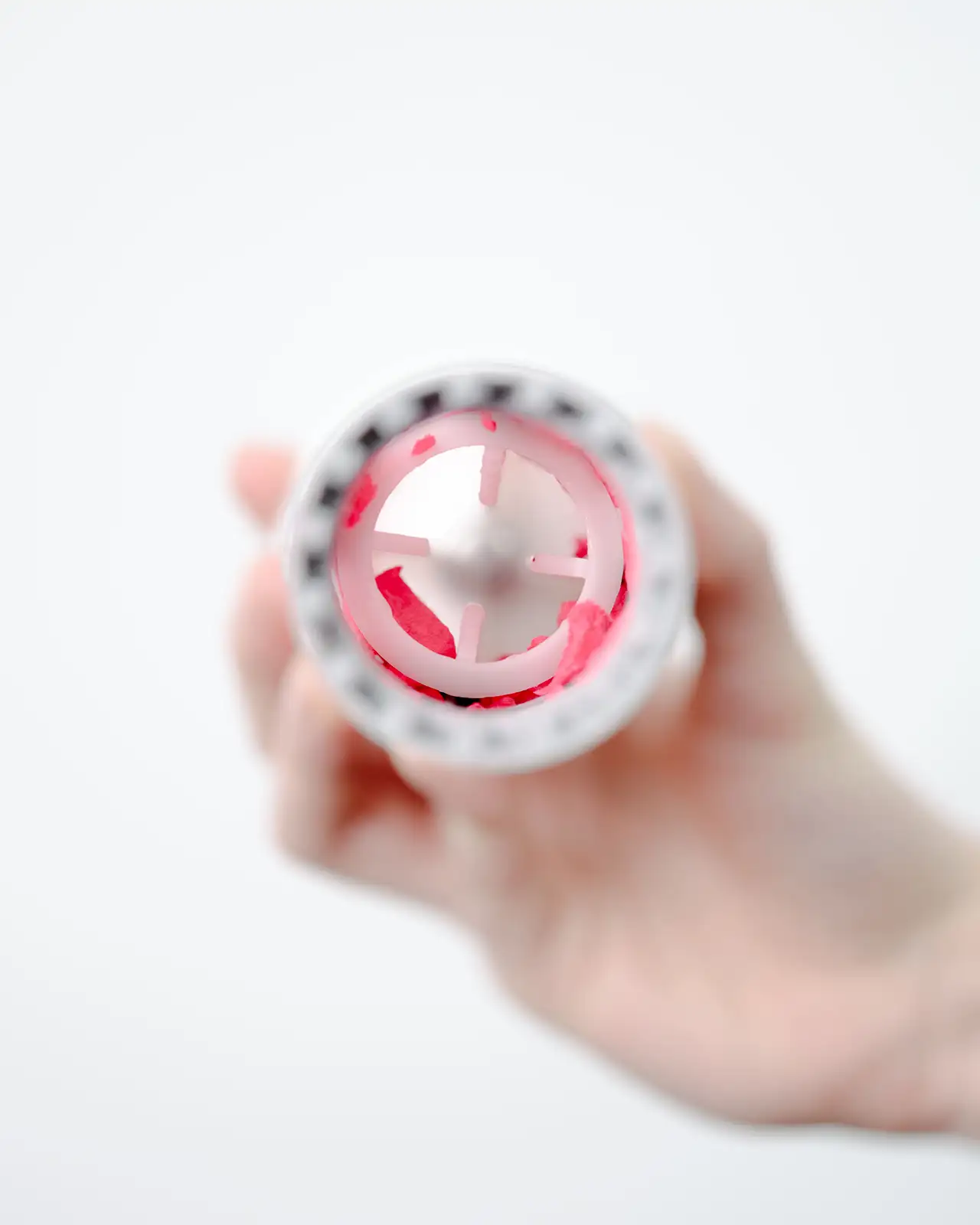 CLOSE
CLOSE
filtration
Microfibres don’t belong in the sea
Microfibres (fibres less than 5mm) from textiles are contributing to the global plastic crisis. Every year more than half a million tonnes are released into the world’s oceans simply from washing our clothes. It is reported that microplastic pollution has increased 10-fold since 2005, with over 171 trillion microplastics particles now floating in our oceans.
We have innovated a solution
Our Microfibre Pollution Filter is designed to be integrated into any domestic washing machine during its manufacture, to help trap the microfibres that our clothes release. Independent tests show it is the highest performing filtration device available, capturing over 99% of microplastics and over 80% of cellulosic microfibres.
A life-time component with no replacement cartridges required, our Microfibre Pollution Filter has the lowest LCA of all the filtration devices. It works with every wash cycle to capture both synthetic and natural microfibres, with the lowest emptying frequency of any integrated filtration device. Our Microfibre Pollution Filter is housed at the top of the machine and can be easily removed to empty the trapped fibres into household waste. The filter uses an innovative spin process to remove water, drying the microfibres for simple removal and disposal that’s intuitive for the user. Just like taking the lint from a tumble dryer.

filtration
Designed for the future
It’s reported that 73% of consumers would actively change their habits to reduce their environmental impact if they had the option. By integrating our Microfibre Pollution Filter brands have the unique opportunity to add a sustainable product feature which also ensures any legislative adherence ahead of enforcement. The Microfibre Pollution Filter is a cutting edge product feature which adds a competitive advantage in a crowded market place.
In a 2021 consumer study, 2,500 people from the UK, Germany and France shared their washing habits and what they are looking for when they purchase a new machine. The survey revealed three-quarters of consumers would choose the Microfibre Pollution Filter’s design over other options and 71% of people would opt for an internal filter over alternate solutions.
Crucially, nearly half of those surveyed would pay an additional £70 for a machine with an internal filter, and one in five would pay £100 extra.



Partnering with industry leaders
Our Microfibre Pollution Filter for domestic washing machines is now available as a licensed product, ready for installation, from our partners.
Working with three leading European component manufacturers, including Hanning Elektro-Werke, our Microfibre Pollution Filter technology is now available as a licensed product ready for installation as a component part.
If the top ten washing machine manufacturers in the world adopted our Microfibre Pollution Filter, in just three years 312 million people would have cut the microplastics they were sending into the world’s oceans by 1.35 million tonnes.
The equivalent of 224 billion plastic forks.

The Legislative Landscape
Filtration is the best applicable, near-term solution to deal with the intensifying issues linked to microfibre fragmentation and release.
Globally there has been an increasing number of regulators looking to implement measures against microfibre pollution and filtration is gaining recognition among policymakers for its effective role in capturing microfibres released via domestic and commercial laundering.
This year, Xeros Technology partnered with fellow solution providers, NGO’s and scientists to collaborate on a white paper delivered to the European Commission. The co-authored paper urged the European Commission to introduce legislation mandating the installation of washing machine filters in its upcoming microplastic pollution initiative. We are awaiting the details of the initiative, the publication of which is currently delayed.
However, the pending legislation from the EU is not the only bill on the horizon. There are a number of governing bodies looking to introduce legislation which would mandate the installation of microfibre filters into new washing machines. This means industry will need to adapt quickly in order to meet upcoming regulations and standards.
Continue reading for more information on upcoming legislation.

France
Legislation: Anti Waste and Circular Economy Law
Status: Passed in 2020 – currently awaiting standards
Bill Details: From 1 January 2025, all new domestic washing machines sold in France will need to fitted with a microfibre filter by law, to filter out fibres before they enter the water supply.
European Union
Legislation: Microplastic Pollution: Measures to Reduce its Impact on the Environment
Status: Proposed – awaiting details of the initiative
Bill Details: As part of the EU Action Plan “Towards Zero Pollution for Air, Water and Soil”, the EU have introduced a microplastics Initiative which aims to tackle microplastics unintentionally released into the environment, with the target of a 30% reduction in microplastics released by 2030.
The European Commission (EC) is due to publish its measures to reduce the impact of microplastic pollution on the environment in Q3/4 of 2023.
Australia
Legislation: National Plastics Act
Status: Passed (Industry led)
Bill Details: Industry led washing machine filtration is being phased in for all new machines by 2030 as part of the National Plastics Act.
United States of America
Legislation: AB1628 Bill, California
Status: Passed by environment committee in senate
Bill Details: The Bill states that as of January 2029, no new washing machines will be sold without inbuilt microfibre filtration.
Legislation: Senate Bill 405, Oregon
Status: In progress at senate level
Bill Details: The Bill states that as of January 2026, no new washing machines will be sold without inbuilt microfibre filtration. With a mesh size of 100 micrometers or less
United Kingdom
Legislation: Microplastic Filters (washing machine) Bill
Status: Currently at 2nd reading stage at House of Commons
Bill Details: A private members bill is being considered by DEFRA which would require all manufacturers of commercial and domestic washing machines to fit microfibre filters into all new machines.
Canada
Legislation: Bill 102, Environmental Protection Amendment Act (Mircrofiber Filters for Washing Machines), 2022
Status: First reading March 2022, vote carried
Bill Details: The Bill amends the Environmental Protection Act to prohibit the sale of washing machines that are not equipped with a specified microfiber filter and to provide for corresponding penalties in case of non-compliance with the requirement.
Integrating the Microfibre Pollution Filter
Partnering with Xeros Technology and adopting our technologies is simple. Outlined below is our standard procedure for technology integration:
1. Contact Xeros Technology today and arrange a discovery call with our dedicated sales and technical teams. We will embark on exploratory conversations to discuss how we can tailor our products to your platforms and consumer needs.
2. We have a technical transfer process that is robust and mature giving you the confidence that when you work with us every detail has been considered.
3. During development work you will have hands-on support from our expert technical, commercial and marketing teams to enable you to seamlessly and successfully integrate our technology so that you can offer customers new, cutting-edge, integrated product features.
